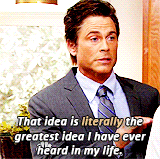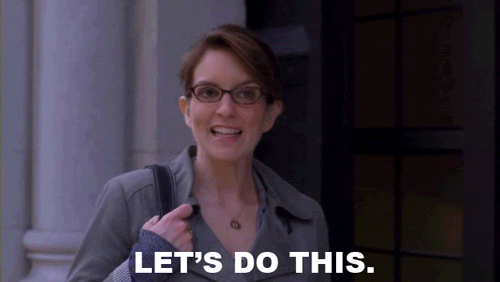Five Stellar Questions for an Interviewee to Ask in a Product Management Interview — Medium
It’s totally possible to be amazing at your job but a pretty crappy interviewee. As someone hoping to join the Product Management team at a new company, what should you ask?

Do not squander this moment. Asking questions of your interviewer is a super important part of any interview process for a few reasons:
- Having questions shows you’re passionate and thinking critically about the position and the company. Asking the right questions further proves how qualified you are.
- Don’t forget you’re interviewing them! Make sure you’ll love your new job, you’ll be able to get a lot done, and you’ll get the support you need.
- Asking the wrong questions can backfire. Avoid questions that make you seem disinterested, lazy, bored, or purely focused on salary/benefits.
As a PM interviewing for a new role, ask these questions to learn a ton about the company, their culture, and how happy you’ll be there. They’ll also make you look good in the process. Read on.
Questions To Ask:
#1: What is the last thing you shipped?
Who to Ask: Anyone (or as many people as possible) on the product, design and development teams.
📢 I’m not saving the best for last. I always start with this. This is the most important question to ask whoever possible.
What You’ll Learn: SO much about the product culture. Most importantly, is this an environment where you’ll be able to get things done? Dig deeper to find out why or why not.
Companies work hard to seem like a great place to work. They’ll talk incessantly about their amazing “startup culture” (the holy grail, right?) and wanting to hire “startup people”. This simple question can cut through immense amounts of BS. 💩
True Story:
Awhile back, I interviewed with an “amazing music company”. They babbled about their coolness and “real startup vibe”. Four times they asked me to not overdress for the interview because they just wanted to hire someone who “gets things done”.

Indeed, their office had cool, brightly colored walls! Receptionist with a cool hairdo! Cool candy bowl overflowed with cool candy! (No plain mints here, guys.) My interviewers seemed smart and nice and generally lovely. Things were going great until I asked one simple question to my would-be product team colleague:
“What’s the last thing you shipped? What’s the last thing you launched that real people are now using?” 🚤
After raving about their “fast, startup culture” moments before, this poor guy looked at me with a blank stare momentarily before answering “Nothing. I guess I haven’t actually launched anything since I started.” Incredulously, I asked, “You’ve been doing product management here for two years and haven’t launched anything?” He sighed, “Yeah.”
From there, he confided and vented a bit about the internal politics and bureaucracy that had blocked him at every turn. About the never-ending priority changes that had prevented almost anything from getting deployed to real users in months or years. I smiled and told him that sounded frustrating and eventually smiled some more and left.

His story told me everything I needed to know about why I wouldn’t want to work there despite all the nonsense they were telling me, each other, and themselves about their culture.
If not much is getting shipped, do your best to find out why. Maybe some previous company problem has recently been resolved or you’re super adept at bureaucracy and feel confident you can turn the place around. You have my blessing.
Assuming they’ve done something besides bug fixes in the last two years (jeez), there are some great, easy follow-up questions:
1b — How was the project prioritized? (Is that typical for how things get prioritized here?)
In the sea of things that could possibly have been done, why did this rise to the top? Was it an idea from the CEO? From someone on the design, dev or product team? A request from a user or user research?
1c — How did the team come together to build it?
Is product expected to create an extensive requirements doc/spec/PRD upfront or something more “agile”? Where do the design+dev teams get involved? Do designers and developers work together or is there a crisp handoff? Are the teams cross-functional, cross-communicative, or siloed? How long did it take from start to finish?
1d — How do you feel the release and launch went?
How did this get in front of eyeballs and how was success measured? Was it a slow rollout or released at once? Were goals established upfront? How did this perform? What’s their attitude towards failure?
#2: If you had an idea for something you thought would be great to work on, what would it take to make it happen? What is the process from having an idea to getting it out the door?
Who to Ask: Everyone! Great products allow inputs from all over the business, so this is a great question to ask other departments, especially design, support, dev, marketing, and sales.
What You’ll Learn: As a stellar product person (which you obviously are, duh), you’re going to have tons of great ideas. Somewhere you can never execute on your own ideas wouldn’t be much fun. For purely selfish reasons, this is important to figure out.

You’ll also learn about the rigidity of the company’s processes. Some companies have no structure at all where random things get worked on, some have formal product submission forms and an annual review process.
Ideally, there’s some way to make a case for an idea, and if it passes muster, you can get it done.
Look for a prioritization process (big or small) that’s:
- at least somewhat transparent
- open to ideas and input from all over the company
- methodical about how things get prioritized
#3: Which drives more product decisions here: qualitative or quantitative data?
Who to Ask: Primarily product, but getting the opinion from designers and developers to compare is interesting too.
What You’ll Learn: How good the business is at user research and data analytics. Whose job is it considered (someone, everyone, no one)?

The perfect answer in a perfect world is:
“We use both! We have analytics tracking how people use our product, and folks here who can help you with that data. We also do ongoing user research on our existing apps and often test things before launching them.”
In my experience, companies use only one or neither. That’s not the end of the world (especially for a new company), but find out why and what the product and design teams think is important. Are they invested in improving? Will you get the support you need?
#4: What is the biggest challenge facing the business right now? What worries you? (And how are you working on solving it?)
Who to Ask: Managers from various departments, the founders, and CEO.
What You’ll Learn: First you’ll learn if they’re realistic and willing to be honest (with you and themselves).
What is their attitude towards challenges? A positive attitude sounds like “Well, this is something we need to fix. We’re working on it, and we’ll figure it out.” A toxic attitude sounds more like fear, dread, or hopelessness.

It’s interesting to see how aligned folks are on this one. If everyone is thinking about completely different things: red flag.
Get some insight into the problems you’ll be thinking about in the months (and years) ahead. Do they interest you?
#5: What is the hardest thing about doing product here?
Who to Ask: Product.
What You’ll Learn: This is an especially great question when things seem too good to be true. Look for a team that acknowledges room for improvement and is motivated and enabled to improve things. This is a great time to ask what they’ve tried so far and maybe even chime in with some ideas of your own.

You don’t usually have a ton of time to ask questions, but I’ve found these really helpful in figuring out if I’m talking to a company where I’ll be happy and productive.
What about you? What questions are you asking? I’d love to hear yours!
Like this post? Hit the “Recommend” button and share it with friends.
Wanna chat about product management? Me too! Tweet me: @redheadjessica.
PS. We’re hiring at Trello and it’s awesome here: http://trello.com/jobs
Big thanks to Alan Igelman for editing help.
